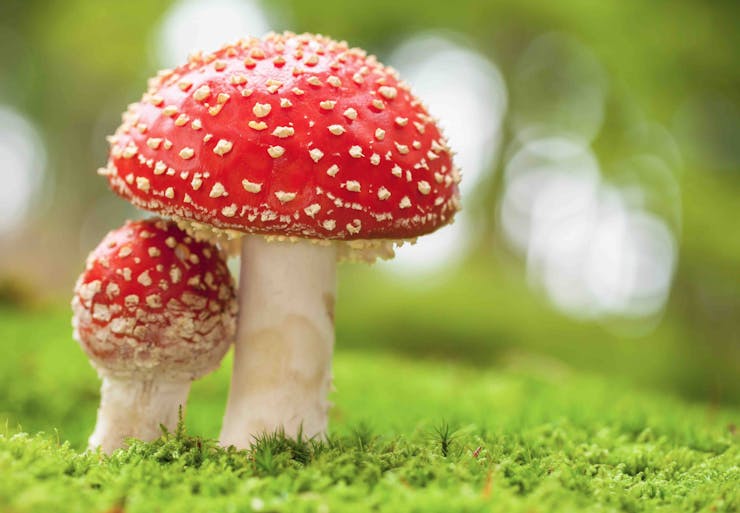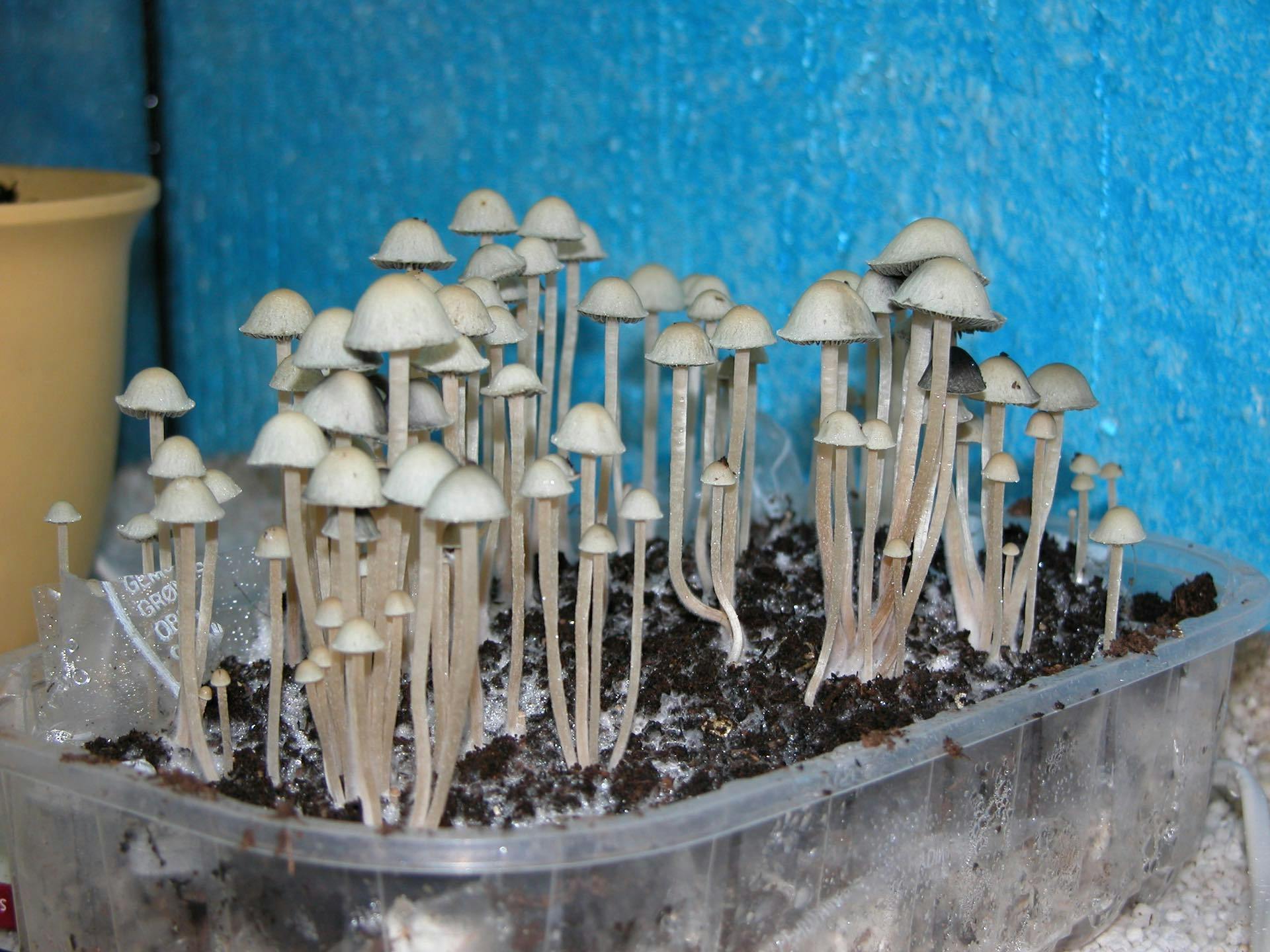Earlier this week, Leafly reported on a rash of recent police raids on illegal mushroom retailers across the US and Canada. In the story, we highlighted Chillum, a hemp-derived product retailer in Tampa, Florida, as an exception to the rule. The shop has legally sold amanita muscaria—also known as fly agaric—products to adults since September.
But it seems we spoke too soon.
On Dec. 7, Chillum’s owner and founder, Carlos Jose Angel Hermida, posted a note on the store’s website, entitled “What Happened to the Mushrooms, Man?” In the blog post, Hermida announced that the Florida Department of Agriculture and Consumer Services had put a stop sale on their amanita products, which include gummies, mushroom powder and microdose capsules. Chillum sources these products from a manufacturer called PsiloMart.
Amanita muscaria mushrooms do not contain psilocybin, but instead a psychoactive compound called muscimol. Federal law does not prohibit muscimol, and Louisiana remains the only state that has barred its sale.
Yet, as Hemida discovered, the idea of selling amanita specifically to consume invited much more legal skepticism from Florida state officials.
Amanita may be legal to possess, but not approved to consume
As Hermida wrote on the store’s blog, the state’s move to halt amanita sales hinged on a single word: The shop encouraged customers to “consume” the mushrooms. But since the FDA has not approved amanita as a consumable food, state officials allegedly argued that Chillum could not continue to sell it as such.
Officials at the Florida Department of Agriculture and Consumer Services did not respond to a request for comment for this story.
Reached for comment on a rainy Florida afternoon, Hermida told Leafly he believes he would have been in the clear if he’d sold the mind-altering mushroom products exclusively for “educational” or “spiritual” purposes.
“This is our fault,” he said. “We should’ve never been telling people to consume it.”
Florida freezes Chillum’s sales, but doesn’t seize their mushrooms
Hermida additionally pointed out that he did not suffer a dramatic raid. In fact, he spoke highly of the state officials who requested the stop sale and noted that Chillum was already under their purview.
Shop highly rated dispensaries near you
Showing you dispensaries near“They inspected us because that’s exactly what they’re supposed to do,” he explained.
Nor did state officials seize any of Chillum’s products. They simply noted his inventory, and requested that he not sell any of it. After some back and forth, they even approved Hermida to sell the inventory back to PsiloMart.
“It could have turned out a lot worse,” Hermida said with a laugh.
Are amanita muscaria safe to consume?
Hermida said he believes that amanita products remain safe to consume. Researchers consider the raw mushrooms to be poisonous, and consumers should be cautioned to not pick and consume them in their unprocessed state.
Manufacturers must properly detoxify amanitas to make them safe for consumption.
The Saami people of modern-day Scandinavia found a novel way to do this: They fed the mushrooms to reindeer, and then consumed their psychoactive, and detoxified, urine.
“We disagree at Chillum that it’s a poison,” Hermida told Leafly.
Drew Gennuso, the CEO of PsiloMart, acknowledged that his company’s mushrooms may not meet the same testing standards as hemp or cannabis. Yet he said they nonetheless remain safe to consume.
Gennuso explained that compounds like heavy metals can sometimes show up in lab results for the mushrooms, but only because the mushrooms absorb them from the soil as they grow in the wild. “They’re in the soil naturally, but it doesn’t mean they’re necessarily bad for you,” he told Leafly. “I don’t think it takes much for it to be deemed poisonous.”
What’s Chillum’s next move?
Hermida, for one, is not giving up his dreams of mushroom entrepreneurship. He plans to roll out a fully separate business called Learneuphoria, an online educational platform. He explained that it will offer users online classes on a range of psychedelics. It will also enable interested parties to purchase amanitas, but for educational purposes only.
“We’ve been developing it for some time now. What is needed most in this industry is education. What’s going on with the Florida Department of Agriculture really shows there’s a huge need for education,” he said.
As for Gennuso, of PsiloMart, he sees the stop sale order as unfortunate, but also a valuable and illuminating insight on how states will regulate amanitas.
“We welcome regulation. We want to know what the parameters are. With Chillum being the first dispensary to really put themselves out there and offer this kind of product, it eventually would happen that we’d get some clarification [regarding if amanita] would be considered consumables, and how they need to be marketed.”
“Until you get direction,” Gennuso added, “you don’t know what needs to be corrected.”








